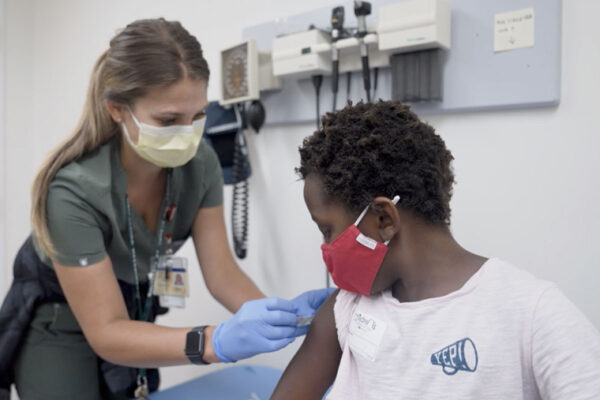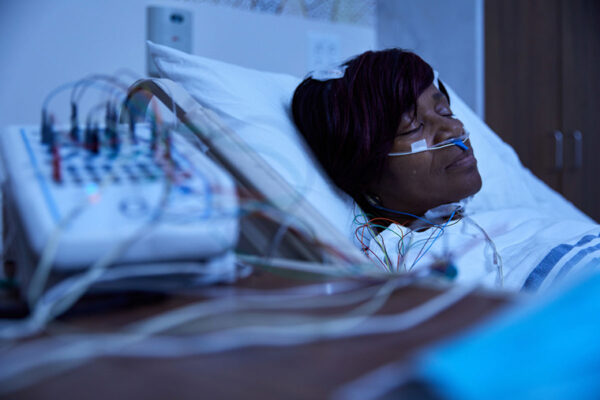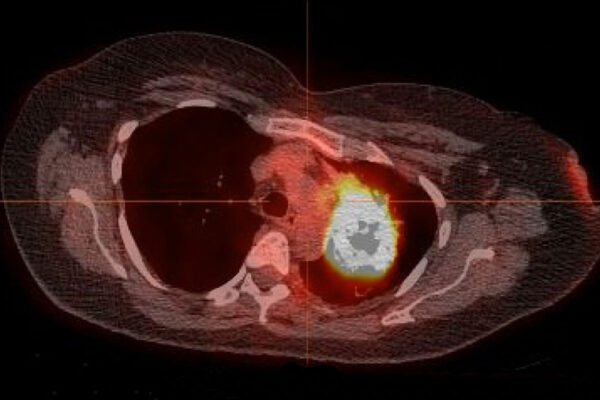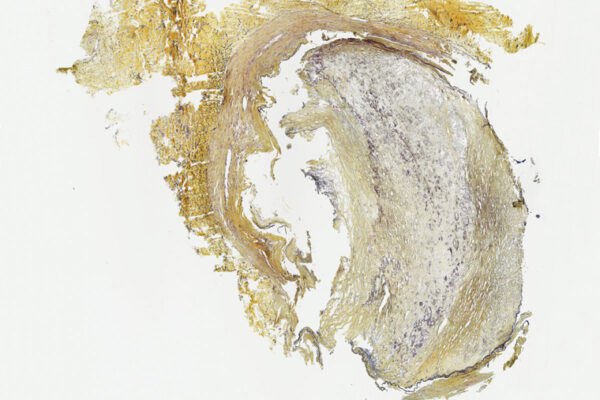Pediatric COVID-19 vaccine trial underway
A pediatric COVID-19 vaccine clinical trial is underway in St. Louis. Led by Washington University School of Medicine, about 140 area children will receive the two-shot Moderna vaccine or a placebo at St. Louis Children’s Hospital as part of a clinical trial involving about 100 medical institutions in the U.S. and Canada.
$35 million to support study of sleep disorder linked to neurodegeneration
Researchers at Washington University School of Medicine, the Mayo Clinic in Rochester, Minn., and The Neuro of McGill University have received a five-year grant expected to total $35.1 million for an extension of a study designed to develop biomarkers that indicate which people with REM sleep behavior disorder will go on to develop neurodegenerative diseases.
NIH awards 4 medical school scientists prestigious ‘high-risk, high-reward’ grants
Four researchers at Washington University School of Medicine have been awarded “high-risk, high-reward” grants from the National Institutes of Health (NIH). The grant program aims to inspire scientific discovery by providing support for highly innovative research. The grant recipients are (from left) Linda J. Richards; Brian J. Laidlaw, Anthony W. Orvedahl and Leonid Shmuylovich.
Holehouse receives NSF grant
Alex Holehouse, assistant professor of biochemistry and molecular biophysics at the School of Medicine, along with researchers at the University of California, Merced, and the University of Wyoming, received a four-year $992,485 grant from the National Science Foundation through the new “Integrative Research in Biology” program.
Schmidt recognized for contributions to neuropathology
Robert Schmidt, MD, PhD, professor of pathology and immunology at Washington University School of Medicine, has received the Meritorious Contributions to Neuropathology Award from the American Association of Neuropathologists.
Most cases of never-smokers’ lung cancer treatable with mutation-targeting drugs
A new study from Washington University School of Medicine estimates that 78% to 92% of lung cancers in patients who have never smoked can be treated with precision drugs already approved by the Food and Drug Administration to target specific mutations in a patient’s tumor.
Blood marker could help ID those at risk of debilitating peripheral artery disease
Washington University School of Medicine researchers have found a protein in the blood that could be measured to identify patients with limb-threatening ischemia — a condition in which heavy plaque formation causes a severe narrowing of the arteries — earlier in the disease process.
Harris Award nominations sought
Nominations are being accepted for the Jane and Whitney Harris St. Louis Community Service Award, which honors a couple for extraordinary contributions to the culture and welfare of the St. Louis area. The nomination deadline is Oct. 29.
Williams named director of hospital medicine division
Mark V. Williams, MD, a respected leader in hospital medicine, performance improvement and health-care delivery, has been named director of the Division of Hospital Medicine in the Department of Medicine at Washington University School of Medicine. His appointment takes effect Oct. 1.
Review updated information security policies
The Washington University Office of Information Security has finalized its annual update of information security policies. The office also will offer events and resources during October, Cybersecurity Awareness Month, to keep the university community informed and secure.
View More Stories






